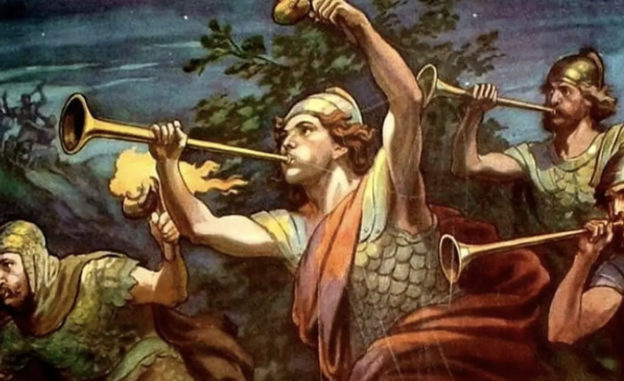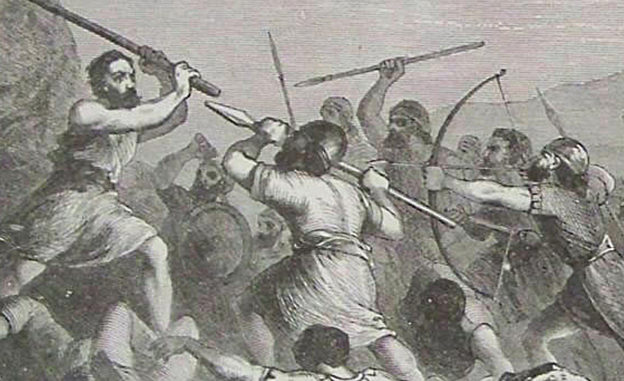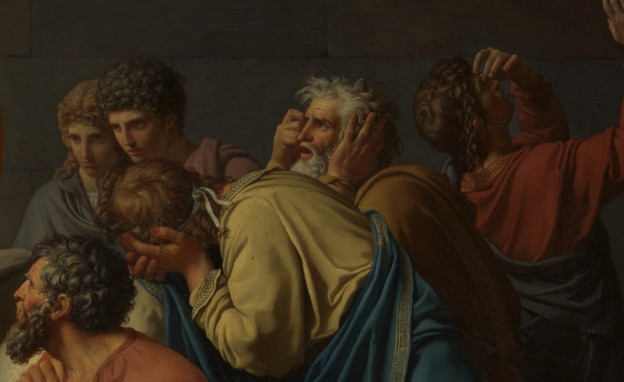Nobody likes it when their idols are cut down. Our idols reflect our sinful desires, whether as individuals or as groups. Whether they are an ideology, a practice, or a physical object, idols are very precious to us. When they are shown to be the impotent things they are compared to God, trouble is not far behind.
Gideon discovered this lesson very early in his mission from God to rescue God’s People from the menace of Midian. His first act, at God’s command, was to cut down the local idols to the false gods which divided the loyalties of God’s People. This placed a demand on Gideon, as it did on God’s People; to choose God over the false gods who cannot fight for themselves. That same demand falls on us today.
The evening after God commissioned Gideon, and Gideon built an altar to God at Ophrah (v.24), God once again spoke to Gideon. The message this time was a command.
“Take your father’s bull, and the second bull seven years old, and pull down the altar of Baal that your father has, and cut down the Asherah that is beside it and build an altar to the Lord your God on the top of the stronghold here, with stones laid in due order. Then take the second bull and offer it as a burnt offering with the wood of the Asherah that you shall cut down” (vv.25-7).
This command was a demand. If Gideon was to deliver his people, it was not enough to treat the symptoms; that is, their oppression by Midian. If Gideon was to deliver his people, he needed to treat the cause of their oppression; their divided loyalties.
This divided loyalty was symbolised by the idols that Gideon’s own father had established for the locals, to the Canaanite gods Baal and Asherah. Gideon was to attack this idolatry by cutting it down, and reconsecrating it to God by building an altar “in due order” following the commands in Deuteronomy 12:3 and Exodus 20:24-5 and sacrificing a bull to God on it.
Two sets of altars stood in close proximity. One to God, and one set to false idols. This could not stand. Baal might be happy to share the idolatry and immorality of false worship with Asherah, but God will not share worship of himself with anything else.
Gideon recognised the demand, and heeded it. But Gideon was not yet a brave man, still the guy like you or I who fearfully threshed his wheat in secret to avoid the eye of Midian. Gideon “took ten men of his servants and did as the Lord had told him” (v.27) but did so at night “because he was too afraid of his family and the men of the town to do it by day”.
Gideon knew that he was cutting down idols, and that it would upset the locals who had become accustomed to the “sacrifices” and “worship” given to Baal and Asherah. While perhaps some might question him for obeying God by night, at least he obeyed!
Gideon’s fear of the locals was not unfounded. “When the men of the town rose early in the morning, behold, the altar of Baal was broken down, and the Asherah beside it was cut down, and the second bull was offered on the altar that had been built” (v.28).
Shock! Horror! Breaking News! The local mob stir to answer “Who has done this thing” before word arrives that it was Gideon, son of Joash (v.29).
The mob want their vengeance for the cutdown of the idols, telling Joash to “bring out your son, that he may die” for daring to do such a thing (v.30). The crisis caused Joash to come to his senses at least, as he challenged the locals saying essentially “If Baal is a God, let him kill my son himself!” (v.31).
No lightning came from the sky to smite Gideon, so the matter was decided. Gideon was given a new name – Jerubbaal, meaning the one who contends with Baal. Gideon fought Baal, and demonstrated Baal was a useless idol without minions to do his bidding. Gideon spiritually cleansed his little part of Israel. The Midianites were next.
It should not surprise us that the locals reacted to Gideon’s act as they did. We can expect exactly the same today when we stand up and point out the impotence of our culture’s idols; its passions and desires worshipped through culture and legislative change.
Money, sex, power, expressive individualism; these are the idols of our age. Like Gideon, we are called to stand and declare that there is only one God, even if it attracts the anger of the locals. We must fear God, rather than man.
But we must also look to our hearts for idols. Any sinful desire that divides our loyalties between it and God is an idol that must be cast down, and the ruins sanctified. Thankfully, through Christ’s blood and the Holy Spirit’s help, we are enabled to heed God’s exclusive demand.






